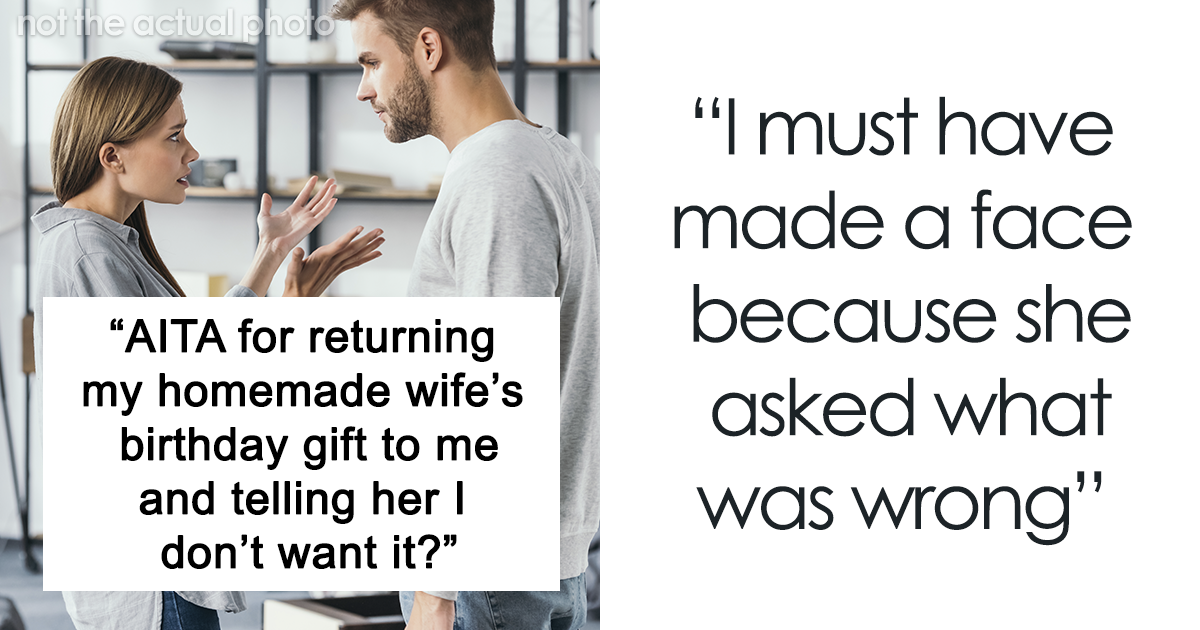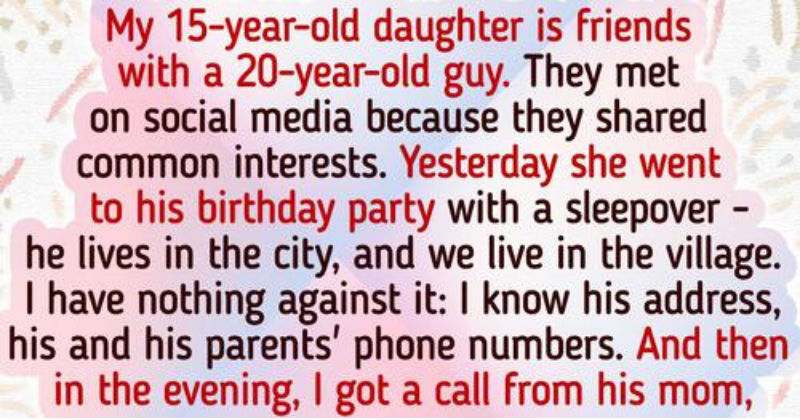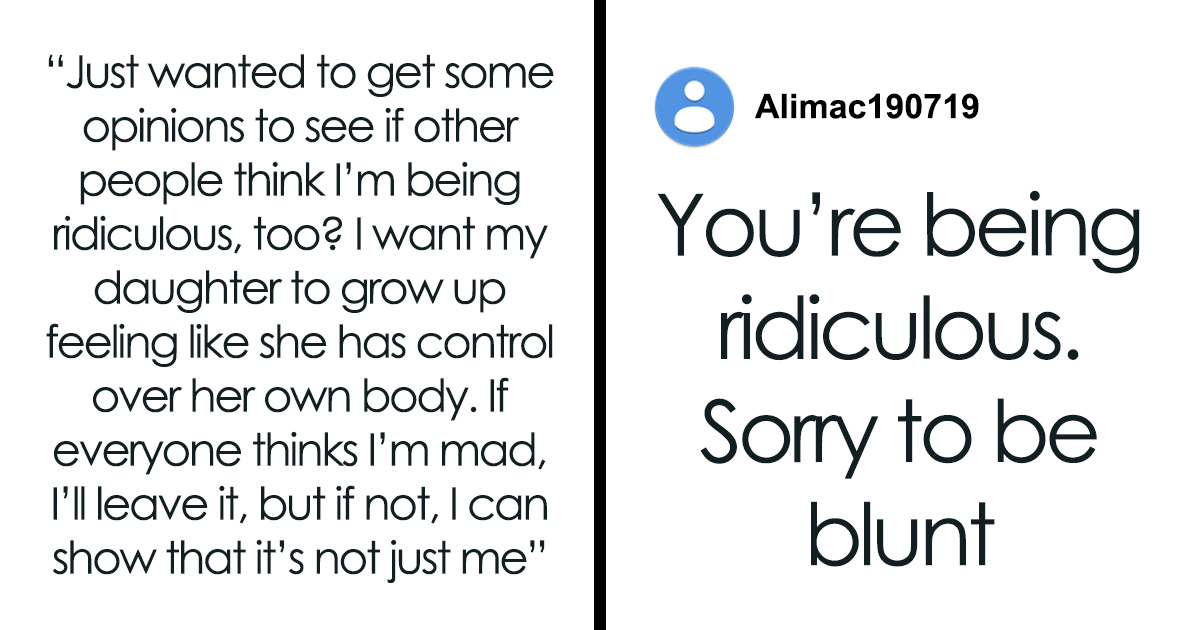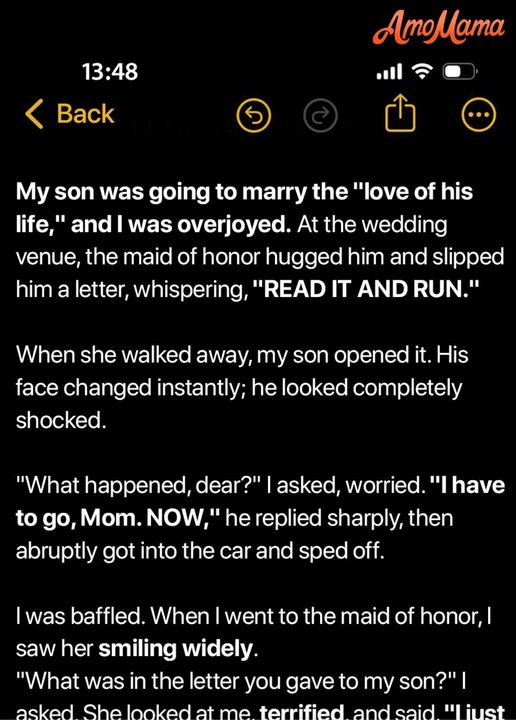“I Don’t Want It”: Wife Surprises Husband With Handmade Gift, He Gives It Back
Gift-giving can be a bit of a gamble. You hope the person will love what you picked out, but there’s always that lingering worry—what if they don’t like it
Most of us would agree it’s the thought that counts. But that wasn’t enough for one man on Reddit who was left feeling incredibly disappointed by his wife’s birthday present.
With a tight budget, she often prefers to craft things herself. To avoid any pressure, the husband made a simple request this year—a $25 book he really wanted. Instead, the wife insisted on a homemade surprise, and his lack of excitement sparked a heated argument. Read on for the full story.
Knowing his wife was on a tight budget, the man asked for a simple birthday gift—a book

Image credits: MikeShots/Envato (not the actual photo)
But she chose to give him something handmade, and he absolutely hated it

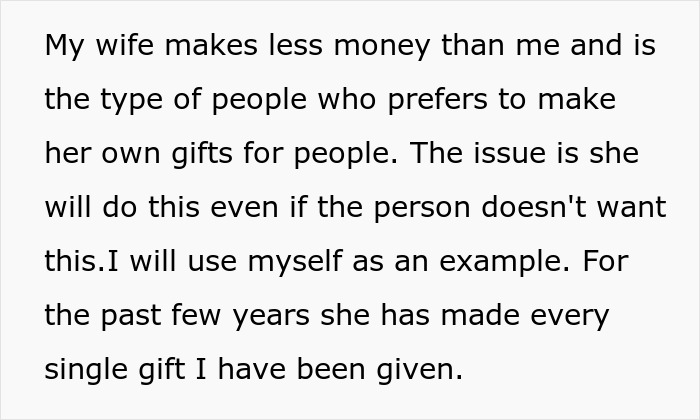


Image credits: seventyfourimages/Envato (not the actual photo)


Image credits: Quick_Dig3584
The psychology of gift-giving
Giving is better than receiving, or so we’re often told. But whether you agree or not, the saying, according to scientific research, is true. Studies show that spending money on others rather than ourselves boosts happiness. That’s because generous acts—like donating to charity or picking out a special gift for a loved one—activate areas of the brain associated with social bonding and pleasure.
“Oftentimes, people refer to it as the ‘warm glow,’ this intrinsic delight in doing something for someone else,” says Emiliana Simon-Thomas, PhD, science director at the Greater Good Science Center, who studies the neuroscience and psychology of compassion, kindness, and gratitude. “But part of the uniqueness of the reward activation around gift-giving compared to something like receiving an award or winning money is that because it is social, it also activates pathways in the brain that release oxytocin, which is a neuropeptide that signals trust, safety, and connection. It’s often referred to as the ‘cuddle hormone.’”
But as great as it feels to give, missing the mark with a present can leave both the giver and the receiver feeling sour—just like in the Reddit story. And more often than not, it has nothing to do with the price tag.

Image credits: Suzy Hazelwood/Pexels (not the actual photo)
A study covered by the New York Times asked people to rank some of the best and worst gifts they’d ever received, and the results were eye-opening. For instance, diamond earrings were a huge miss because the giver hadn’t noticed that his girlfriend of three years didn’t have pierced ears. On the other hand, a case of instant ramen was a total winner because it was a rare flavor the recipient’s mom knew he loved and had gone out of her way to find.
As Kate Murphy, the author of the NYT article, explains, when it comes to gift-giving, context is everything. “Whether a present is a home run or an epic fail depends less on cost, design, style, presentation, or practicality and more on the giver’s ability to listen, observe, and empathize—and perhaps do a little sleuthing,” she says.
“Gifts are an expression of feeling,” says Dr. Bonnie Buchele, a psychoanalyst in Kansas City, who has seen her share of gift-giving dilemmas. “So, in the rush of the holidays—that panic of ‘Oh my God, I’ve got to get gifts’—it’s a good idea to take a little time to think about ‘What do I want to say here with this gift?’”
When someone receives a present they don’t like, it can feel as though the giver doesn’t really see them for who they are. This can be especially frustrating, and even heartbreaking, if it’s coming from someone close to you.
The problem is that the true purpose of gift-giving often gets lost in the excitement. “People tend to fall into the trap of not fully putting the recipient first,” says Dr. Julian Givi, an assistant professor of marketing at West Virginia University’s John Chambers College of Business and Economics.
This doesn’t necessarily mean that the giver is selfish or inconsiderate. It simply shows that they’re not great at what psychologists call perspective-taking, or seeing things from someone else’s point of view. “People tend to have trouble with that,” Dr. Givi explains.
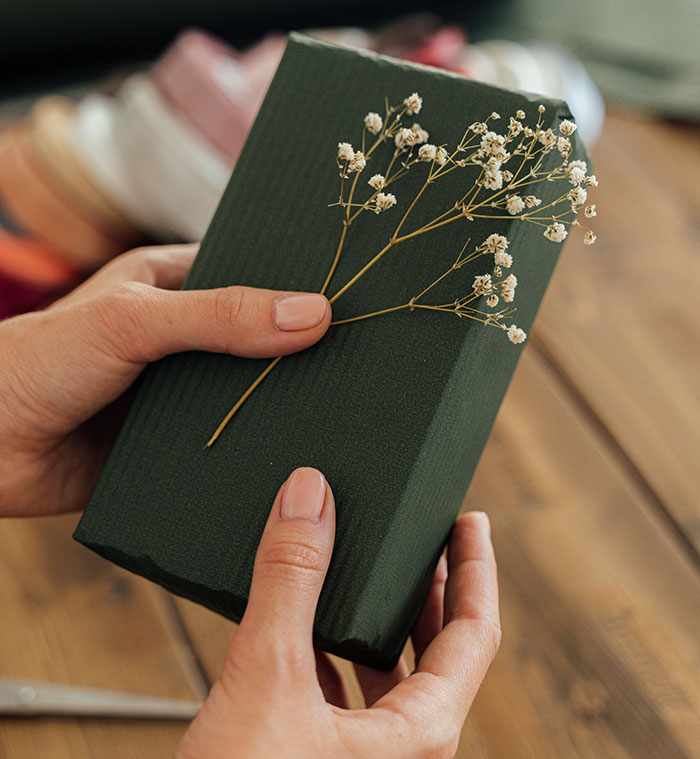
Image credits: Antoni Shkraba/Pexels (not the actual photo)
So how can you get better at choosing gifts that leave a lasting impression? Kate Murphy has some advice.
“Pay attention to the topics that light up the people on your gift list. Look at what they have in their homes and offices, what they wear, the colors they favor, what they take pictures of, and what they like to eat and drink,” she suggests. “If they’re into exotic cocktails, for example, they might get a real kick out of LED swizzle sticks or a private mixology class.”
Murphy also recommends considering what might make their lives easier. “Pick up not only on people’s joys and delights but also on their burdens and aggravations, and think of gifts that might alleviate those things. If they complain about never having enough free time, steer clear of time-consuming gifts like jigsaw puzzles or 1,000-page books,” she says. “Instead, think about time-savers, such as a robot vacuum or hiring someone to fix things around the house that the recipient hasn’t been able to attend to.”
By being more mindful, you’ll not only become a better gift-giver, but you’ll also learn more about people’s passions, values, and even their struggles. In turn, this will help you build deeper, more meaningful connections with those you care about, which, in the end, is what truly matters.
The man explained in the replies that his wife could easily afford the book

Some commenters felt she was inconsiderate for ignoring his request
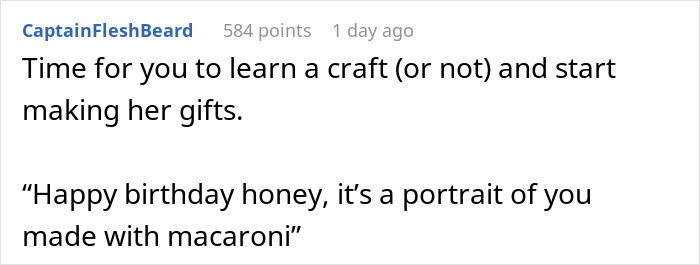

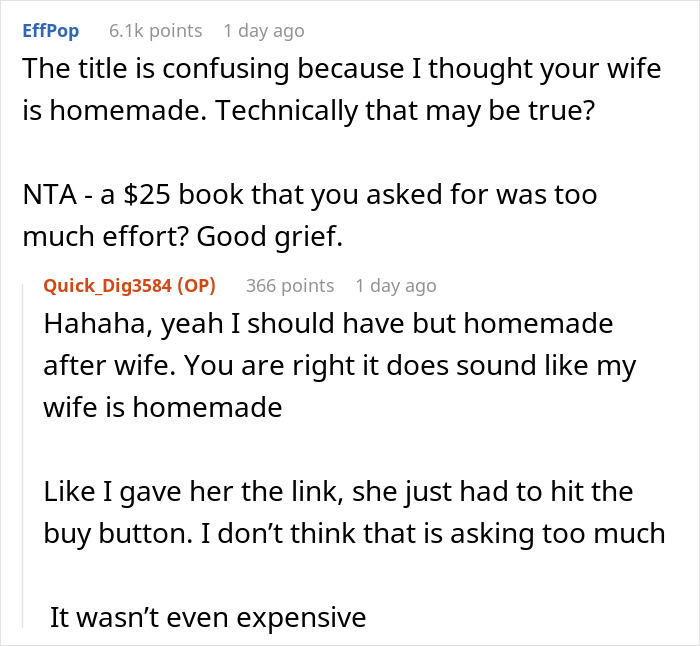

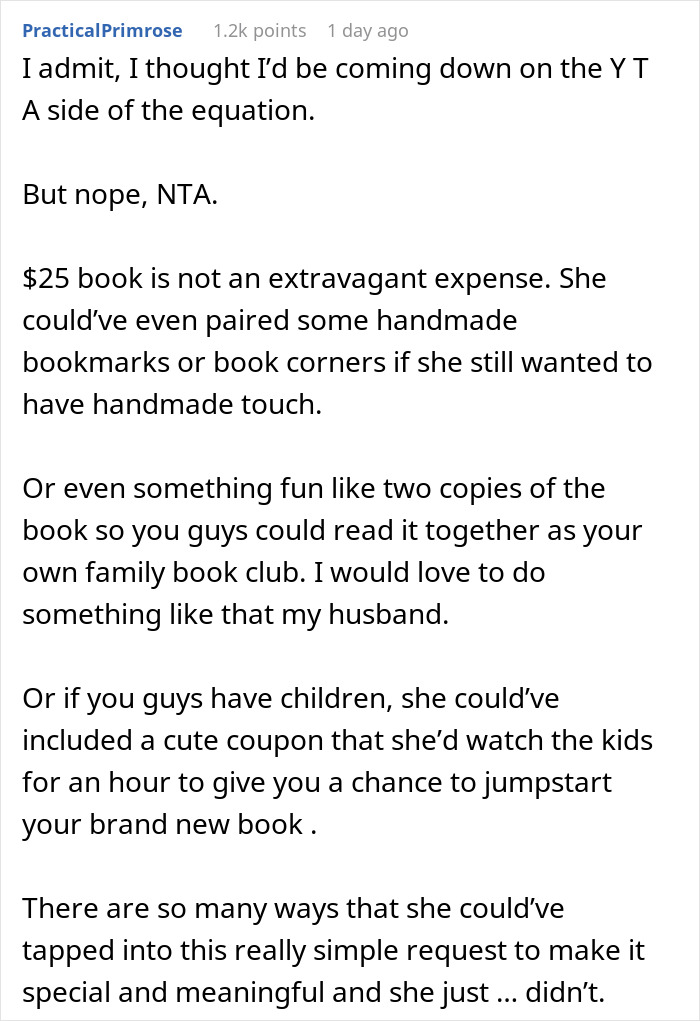

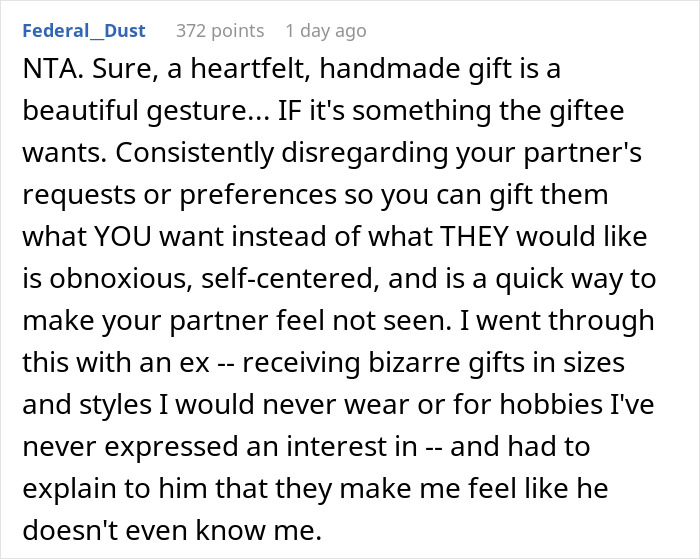
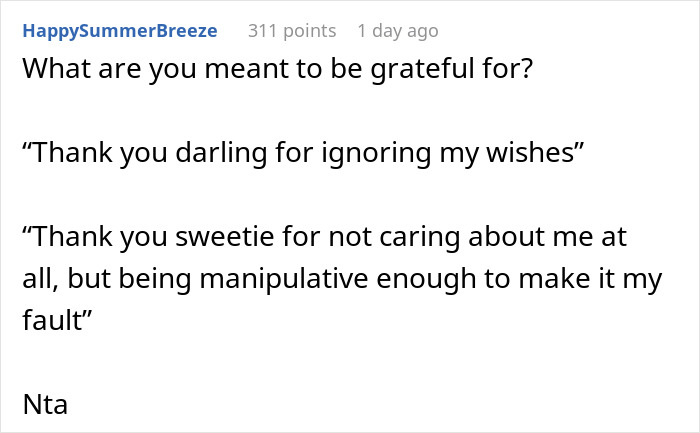
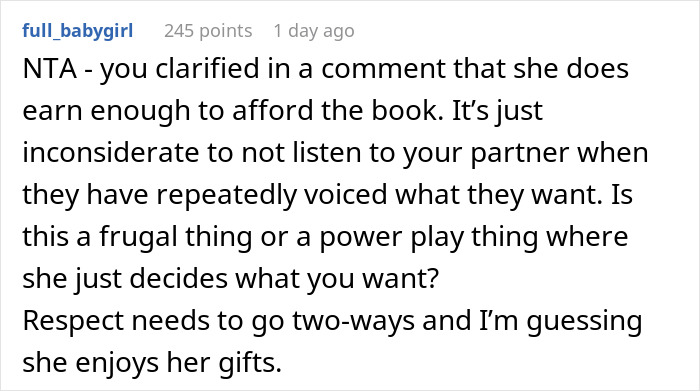
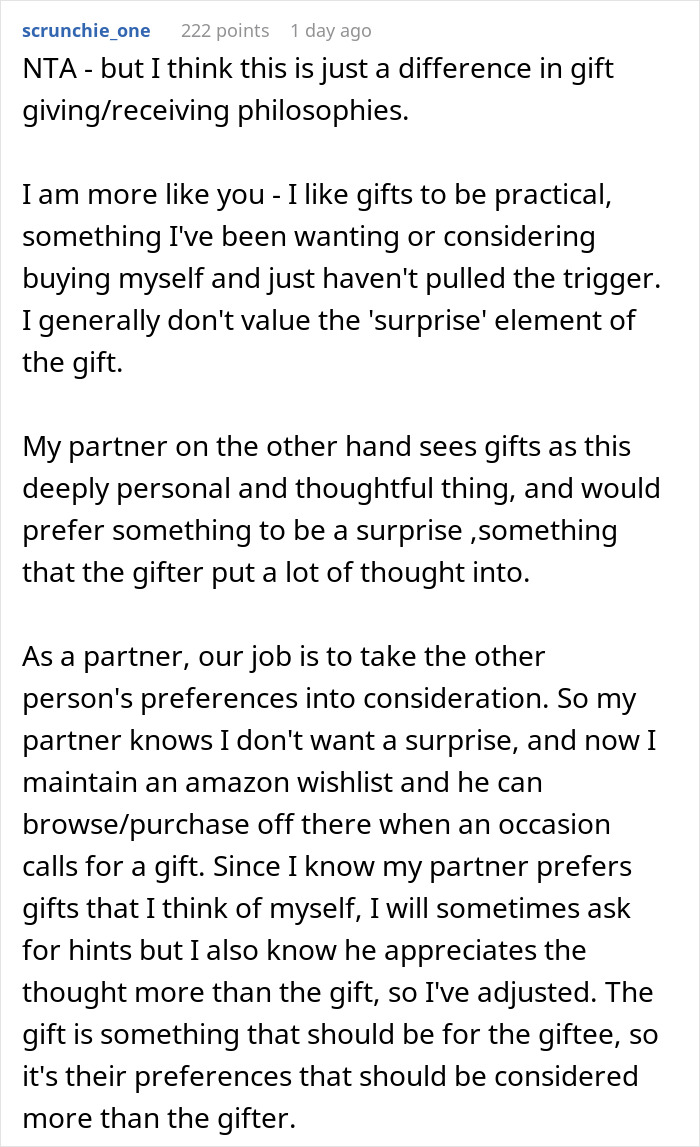
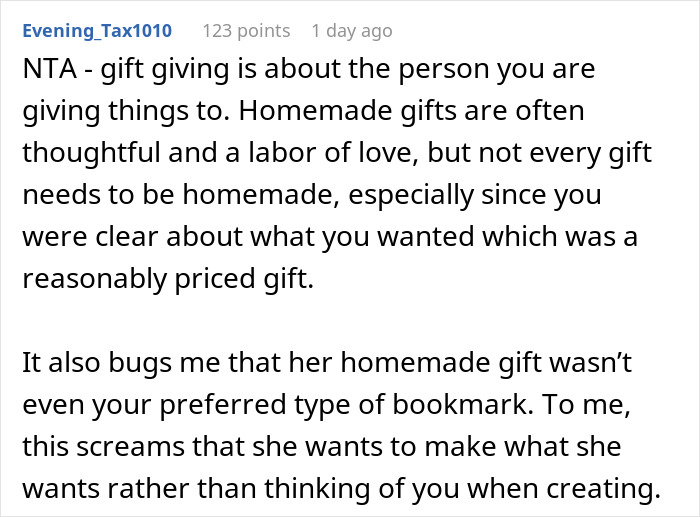
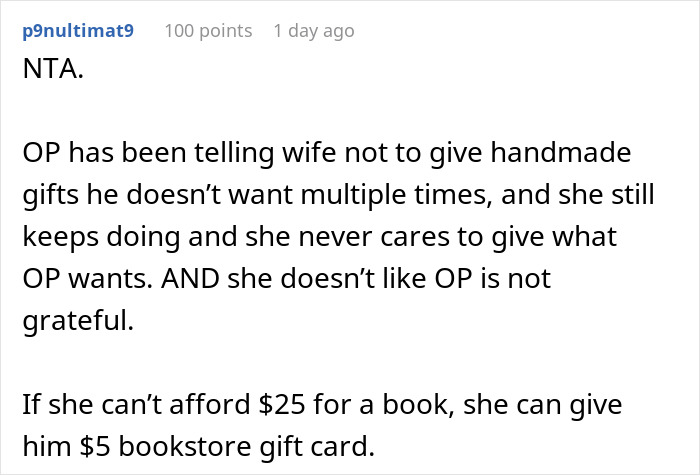
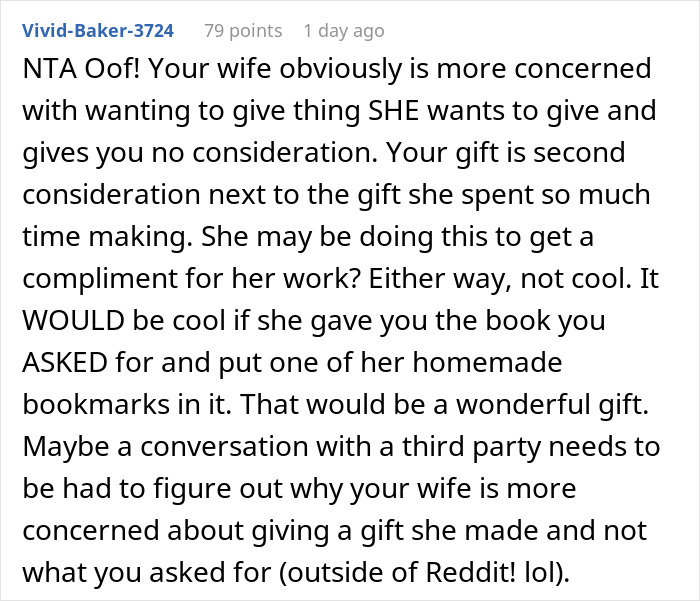

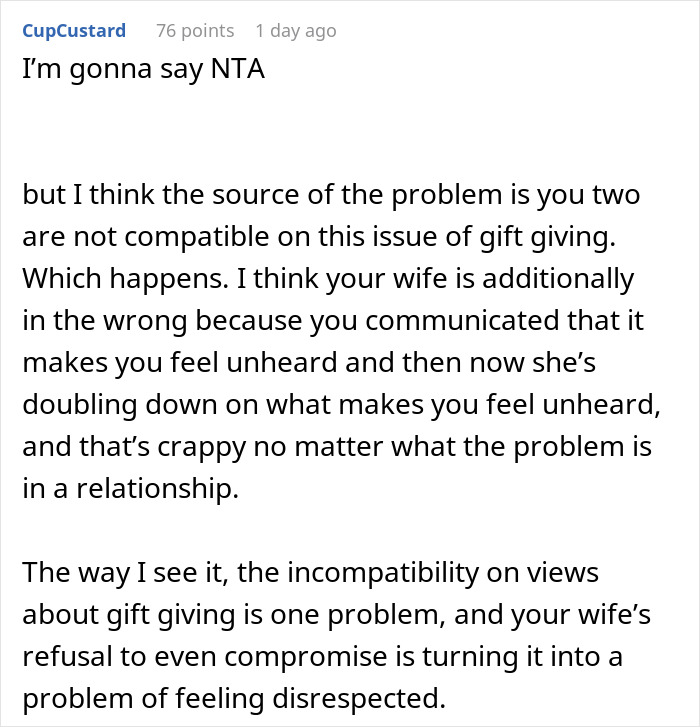
Others argued he should have just let it slide and appreciated his wife’s effort
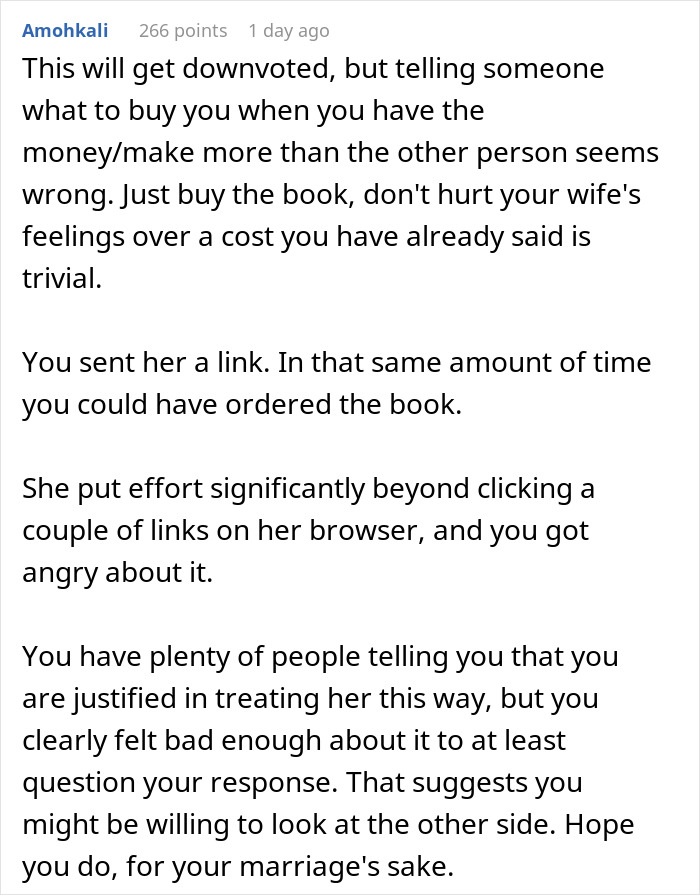
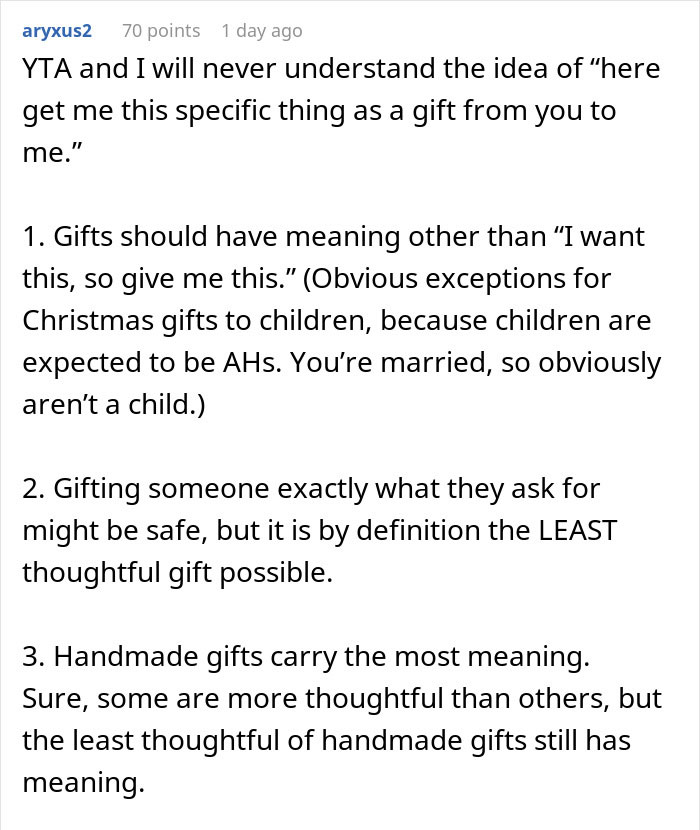
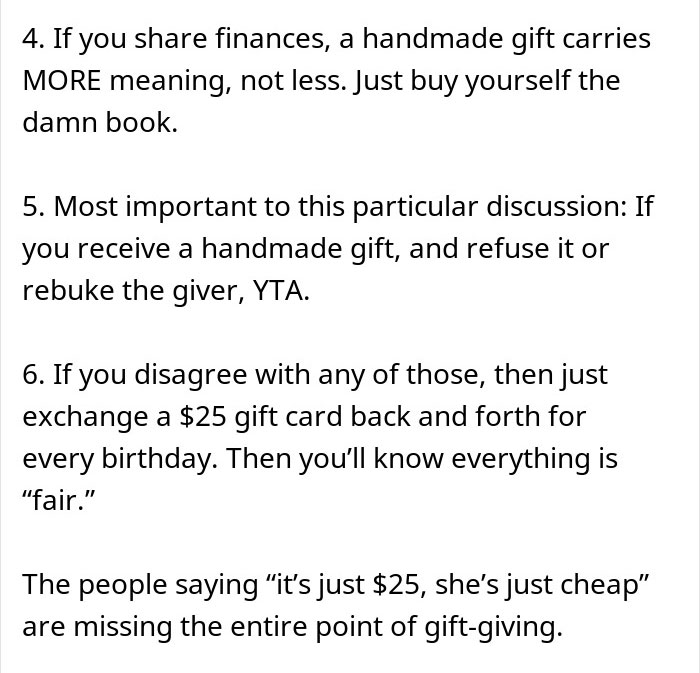

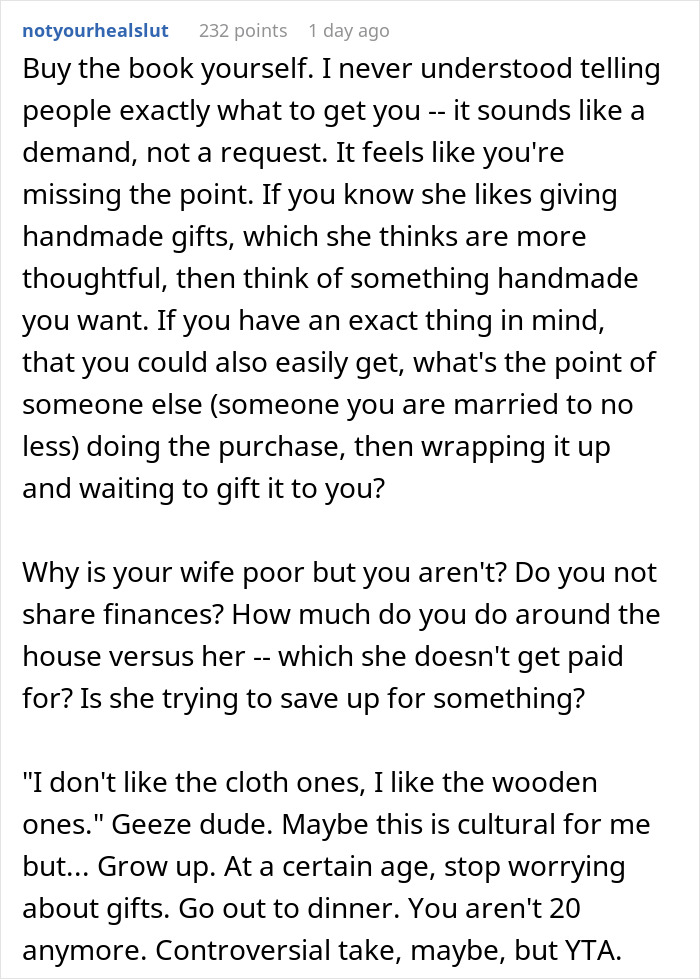

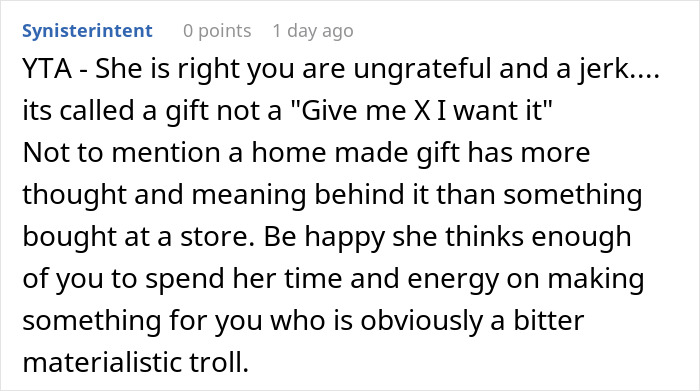
One of the great joys in life for me is gift-giving, especially when you know what the recipient loves or wants and tailoring it just for them. It’s about making them happy and thought of. I couldn’t disregard my partner’s requests for something that they’d enjoy. I love handmade gifts, but only if they’re right for the person.
She’s nutty. She just gave him the bookmarks to almost highlight the fact she didn’t get the actual book.
Gift-giving can be a subtle way of hurting your partner. Wife knows Hubby does not like homemade gifts. He tells her exactly what he wants, which is within a reasonable price range, and she ignores him. An ex did that to me. I was in uni, so every penny counted. I had NO money for novels. There were books I desperately wanted but could not justify buying. I gave him lists, told him which stores to go to, all of it. Sat him down and told him seriously how much it would mean to me if I could have those books. I always stretched my budget to give him exactly what he asked for, often borrowing money from my mum. And he would bring me some random s**t that he knew I would hate, expensive, gaudy decorations I had no shelf space for, etc. I tried to be grateful the first few times. And he’d be mad if I didn’t get rid of books to display them. I realized he was doing it because he knew it would hurt me, then I came off as an ungrateful shrew, and he was the saint for putting up with me.
I won’t lie. As much as I hated Temu Ring Dude, I hate Cheap Pretentious Craft Bae.
